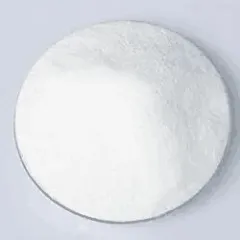Overview of Hydride Powder:
Hydride powder refers to the composite powder of hydrogen and metal or other elements. Hydrides are binary compounds of hydrogen and other elements. However, in general scientific and technical work, binary compounds of hydrogen and metals are always called hydrides, and binary compounds of hydrogen and nonmetals are called hydrogen.
Uses of Hydride Powder:
Hydride powders are widely used in many fields. For example, calcium hydride CaH2 is used as a reducing agent, desiccant, chemical analysis reagent, etc. Zirconium hydride ZrH2 is used in industry as fireworks, flux and ignition agent. It is also used as a descaling agent in nuclear reactors, in vacuum tubes, and in cermet seals, strong reducing agents, blowing agents, cemented carbide additives, and powder metallurgy. TiH2 powder can be widely used in fireworks, aerospace, medicine, petroleum, petrochemical, soda ash, fertilizer, metallurgy, navigation, nuclear power and other fields.

Hydride Powder Supplier
We supply high-purity, ultra-fine hydride powders, such as titanium hydride, hafnium hydride, calcium hydride, vanadium hydride, zirconium hydride, etc. Email us or click the desired product to send an inquiry.
Payment Term:
T/T, Credit Card, Western Union, Paypal etc.
Term for delivery:
By air, courier or by sea according to the needs of the customer.
Conditions of storage:
1.) Maintain a dry area at the temperature of room.
2.) Avoid high and damp temperatures.
3.) Utilize immediately following the opening of the bag inside.

FAQ:
Q1:
What is hydride powder?
Re:Hydride powder is an inorganic compound that usually appears as a white or colorless powder. This compound is soluble in water and is relatively easy to decompose by oxidation. Hydride powders have many uses, such as catalysts, optical materials, electronic devices, and other applications. In the field of catalysts, hydride powders can be used for selective catalytic reactions of various hydrocarbons, such as hydrogenation, alkylation, and isomerization of olefins. In the field of electronic devices, hydride powder, as a comprehensive bandgap semiconductor material, has the advantages of high electron mobility and low dielectric constant and is used in the manufacture of high-temperature, high-speed, and high-frequency electronic devices and integrated circuits.
Q2:
What is the chemical formula of hydride powder?
Re:There are many chemical formulas for hydride powders, the most common of which are sodium hydride (NaH) and potassium hydride (KH). Both of these compounds are ionic compounds, consisting of hydrogen ions and corresponding metal cations. In addition, there are other types of hydride powders, such as calcium hydride (CaH), magnesium hydride (MgH2), etc. These compounds are widely used in industry, scientific research, medicine, and other fields, but they also have specific safety risks, and corresponding protective measures need to be taken.
Q3:
What is ionic hydride?
Re:Ionic hydrides, also known as salt-type hydrides, are binary compounds formed by hydrogen and calcium, strontium, barium, and radium in alkali metals and alkaline earth metals. Its solid is an ionic crystal, such as NaH, BaH2, and so on. In this type of hydride, hydrogen exists in the form of H-, can conduct electricity in the molten state, and emits hydrogen at the anode during electrolysis. The oxidation number of hydrogen in ionic hydride is -1, has a strong tendency to lose electrons, is a potent reducing agent, and strongly reacts with water in an aqueous solution to release hydrogen, making the solution strongly basic, such as CaH2+2H2O→Ca(OH)2+2H2↑.
The reducibility is more potent at high temperatures, such as NaH+2CO→HCOONa+C; 2CaH2+PbSO4→PbS+2Ca(OH)2; 2LiH+TiO2→Ti+2LiOH.
Ionic hydrides can be directly synthesized from metal and hydrogen under different conditions. Complex hydrides are mainly used as reducing agents, initiators, and catalysts.
Q4:
What is the use of hydrides?
Re:Synthetic petroleum and petroleum products: Hydrogen is an essential raw material for synthetic petroleum and its products (such as petrochemical raw materials, synthetic rubber, synthetic fibers, etc.). Hydrocracking can be used to convert oil sands or other unconventional petroleum sources into synthetic oil.
Catalyst: In many chemical reactions, hydrogen is used as a catalyst, such as hydrodesulfurization, hydrotreatment, and other processes, to improve the reaction rate and efficiency.
Preparation of hydroxide: hydrogen and oxygen at high temperatures and pressure react to produce hydroxide, such as sodium hydroxide, potassium hydroxide, and so on. These compounds are used in the manufacture of everyday products such as soap and detergent and are also necessary raw materials for many chemical processes.
Preparation of hydrides: Hydrogen can hydrogenate with many elements to generate corresponding hydrides, such as silicon, copper, metal hydrides, etc. These hydrides are widely used in chemistry, electronics, aerospace, and other fields.
Reducing agent in metallurgical process: Hydrogen, as a reducing agent, plays an essential role in metal smelting, purification, reduction, and other methods, such as the smelting of copper, nickel, vanadium, tungsten, and annealing of austenitic stainless steel.
Q5:
What are hydrides?
Re:Ionic hydrides (salt-like hydrides): A class of compounds having a high melting point and high stability, usually formed from more reactive metals with hydrogens, such as alkali metals, some alkali earth metals, and lanthanide metal hydrides.
Covalent hydrides: formed from non-metals (without noble gases) or metal-like compounds with hydrogen, with a low melting point, and usually named "hydrogenated" rather than "hydrogenated."
Transition metal hydrides: There are many types of transition metals, some of which are definite integral compounds.
Boundary hydrides: Properties between covalent and transition metals, less reported.
Coordination hydrides (complex hydrides), including lithium aluminum hydride, sodium borohydride, etc., have critical applications in industrial production and organic synthesis.

